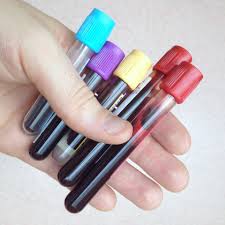Cardiac enzyme tests
Cardiac enzyme tests can tell whether or not you have had damage to the heart muscle. The most common cause of this damage is a heart attack.
Enzymes are proteins that help with chemical actions in the body. When the heart muscle is damaged after a heart attack, it releases certain enzymes into the blood. These enzymes are normally already in the blood but at a low level. The more severely the heart is damaged during a heart attack, the more enzymes are released and the higher the levels of enzymes in the blood will be. The levels can be measured from a series of blood samples taken over a few days.
The most commonly measured enzymes nowadays are called Troponins- comes in variety of Troponin I, T or high sensitivity Tropinin (Hs Troponin). Troponins are type of proteins, normally found in the heart muscle but not in the blood. If the heart is damaged – for example, by a heart attack – troponins leak into the blood where they can be detected by a simple blood test.
The peak levels of these enzymes are seen at different time limits depending on the enzyme tested. In cases of standard Troponins, they tend to raise after 8 hrs and reach a peak level at 12 hours, whereas high sensitivity Troponin start to raise with few hours and becomes positive as early as 4 hours after a heart attack.
Often if you are admitted to hospital with chest pains, the troponin test can help doctors to decide whether you have had a heart attack.


